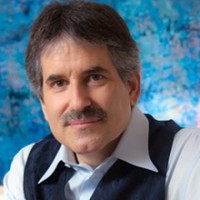I just got back from leading a nine-day meditation retreat in the wild and cactus-filled desert of Arizona.
And I feel exuberant, inspired and powerfully awake to the presence of immanent and seemingly infinite potential, simply because I took a sustained break from our modern world and its unspoken cultural agreements and assumptions about what’s real and important.
How many of us think it’s important to regularly create the space in our lives to temporarily let go of everything we are usually consumed by? And I do mean everything.
On the first day, as I gathered with the couple hundred participants for a Q&A session, one man told me that he was overwhelmingly busy at work and that his wife had recently complained that he wasn’t giving enough attention to his family.
My response was, “Have you considered that in this day and age there could be something even more important than work and family?”
That’s a question that goes against the grain of our culture. How many of us think it’s important to regularly create the space in our lives to temporarily let go of everything we are usually consumed by? And I do mean everything.
At the beginning of the retreat, I asked everyone to take the risk of dropping their relationship to anything and everything except life’s most profound spiritual truths and biggest philosophical questions—questions like:
“Who am I?…Who am I really?”
“Why am I here in this world?”
“Why does the universe exist?”
“Why did something come from nothing?”
“Does the life I live mean anything?”
“Is there an ultimate purpose to existence?”
I also taught them how to meditate.
Together, deep meditation and profound contemplation make up the tried and true path to enlightened awareness. Aspiring for enlightenment requires you to do both these things:
1. Sit still like a beautiful stone statue of the Buddha and continuously let go of your mind and your thoughts until you glimpse—even if only for an instant—the same awe-inspiring mystery of the empty void that he did.
2. Then, when you are relatively free from the endless onslaught of conditioned thinking, become a philosopher. Like Socrates, Descartes, or Heidegger, dare to question everything you already think and already believe.
Engage in this same process day after day: spend long periods of time in deep and sustained meditative silence followed by intense sessions of heroic inquiry in which you use your mind to transcend your mind. You’ll know you’re making progress when you experience powerful and liberating breakthroughs.
Achieving these kinds of breakthroughs on a regular basis—meaning at least twice a year—is, I believe, a prerequisite to living a sane, meaningful and directed life.
The first kind of breakthrough occurs in the meditative process; it is the exhilarating experience of freedom from time, history, and personality.
This feels like peace—but not an ordinary kind of peace. It is a peace in which you are simultaneously awake to the mysterious presence of a depth without end and mesmerized by an overwhelming sense of awe.
The second kind of breakthrough is the result of focused and intense philosophical inquiry; it is the emergence of a profound and shocking clarity of mind and thought. Suddenly, you are able to see more clearly than ever before, and with more depth and perspective than you have ever known. Your mind becomes vast like the sky and crystal clear like a highly polished diamond.
Achieving these kinds of breakthroughs on a regular basis—meaning at least twice a year—is, I believe, a prerequisite to living a sane, meaningful and directed life in this often-confusing, increasingly chaotic, and sometimes-frightening world we share.
Once we wake up to this perennial truth, in order to stay awake, we only need to be willing to continue to pay the price to be enlightened beings. And if that only means taking out a weekend or a week (or more) twice a year, it’s a price most of us can surely afford.
*Adapted from Andrew’s BigThink Blog, The Evolution of Enlightenment.
Like elephant spirituality on Facebook.
Ed: Bryonie Wise
(Source: observando.net via YogaTrail on Pinterest)










Read 2 comments and reply